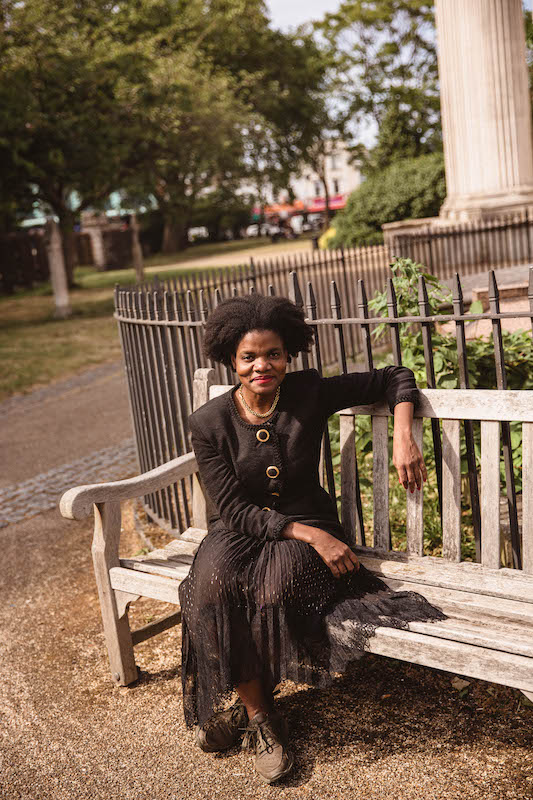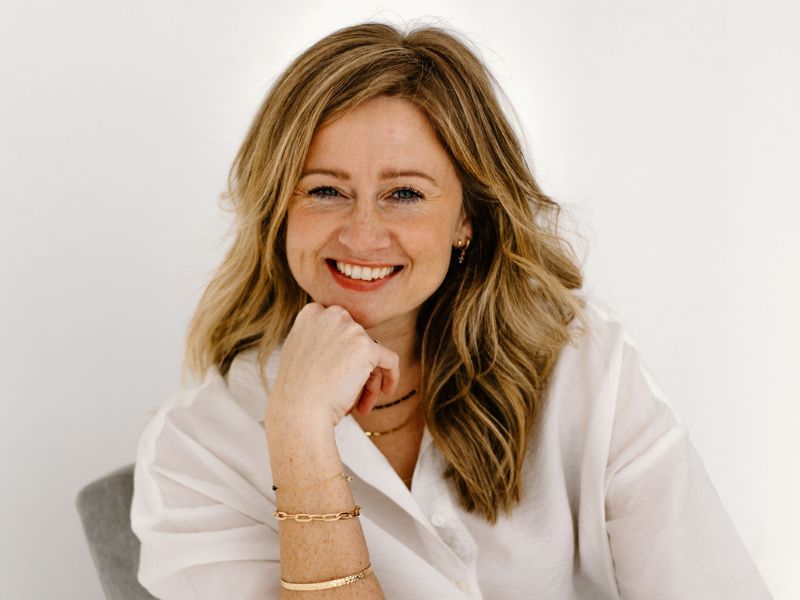 I was born in Lomé, Togo, on the Gulf of Guinea. My father was an army doctor when I was younger, and we moved quite a lot up until my teenage years.
I was born in Lomé, Togo, on the Gulf of Guinea. My father was an army doctor when I was younger, and we moved quite a lot up until my teenage years.
I had a very nomadic childhood, living for a few years at a time in many cities across Africa, Europe and North America. To this day I still feel like a bird and am always itching to go travel somewhere I do not know and explore the world. At school I was equally good at statistics, writing and drawing. I loved being creative yet bringing some structure when needed. It felt like a good balance.
I started my career in the Finance sector in 2006. I was then working for HSBC’s investment bank in Paris. It was my first job, after having completed various long-term internships in the luxury and advertising fields. Then in 2008, the financial crisis hit. I had just finished a graduate degree in management, and I was in London about to start work in another investment bank.
The crisis was a revelation. Many friends who had sacrificed a lot for their budding careers were suddenly laid off with next to no pay. Many took years to regain their footing in the sector, others never managed to and changed careers altogether. This was easily one of the greatest lessons I ever learned. It was the time I understood that I needed to look at my career as a tool to achieve my personal goals, rather than an end of itself. It was the beginning of what became a twelve-year career in the Finance sector, a career during which I worked for organisations as diverse as insurance companies, banks and private equity firms.
I left banking in 2018. I knew for a long time that I wanted to take a sabbatical to consider what I wanted to do next in my life. Outside of work in previous years, I had created a start-up that helped small businesses grow and access investment. Interestingly through my travels I had decided to start working In Vietnam, which is where I opened my start-up in 2015, and I was offering virtual services before hiring a team in Ho Chi Minh City which was helping me do that. Things did not work out on this project and I decided to take a sabbatical to rethink things through.
I wanted to rediscover the creative side of me that I had felt was stunted for so long. I went back to school. I didn’t have any work to do as I was on a sabbatical so I enrolled in jewellery design classes and started scouring the trade stores, auction houses and shows to learn about the different tools of the trade. It was a totally different way of working and a totally different side of the world that I was discovering.
I was making my first steps in the makers world, me who for so long had only been a knowledge worker.
Did you ever sit down and plan your career?
Funny enough I did. I am a planner at heart. I am not a devotee of doing everything by lists. I still like to keep an element of whimsy and chance to what I do. But in 2009, I wrote down a list of goals that I wanted to achieve by the time I turned 30. A few years on now, I can say that I did accomplish most of these goals, even though they may not have materialised exactly how I envisioned them.
Have you faced any challenges along the way?
When I started in 2006, the finance sector was a challenging place to operate as a young woman. Compared to today I would say that there were fewer of us, especially on the investment side.
The few examples of women in leadership position were often women who had to be exceptionally tough either in demeanour or language or had to display a show of toughness. Even then, I knew that my style of leadership was the kind that was more interested in understanding the root cause of issues and addressing them in a way that is inclusive and takes people on the journey. I did not see enough of this around me or in the stories that my fellow young professionals were telling me.
But I think looking back, the bigger challenge is that we in part used to consider it normal. It was somewhat normal to work most days beyond 11pm and come back before 8am every day, it was ok to work weekends, have next to no social life. It was often something you would brag about because it was perceived as a symbol of dedication, grit and toughness. Too often the number of hours rather than the outputs were considered a sign of dedication which at times meant that many of us would stay in the office even when we didn’t have much work.
The culture of sacrificing my personal life for my work life was something that I initially subscribed to. It was hard, but I understood it as a price for where I wanted to get in my career.
More recently, my biggest challenge has been to learn and understand the language of jewellery. To fully embed myself into a different industry that has totally different codes and languages.
It also took me a while to figure out the system that would work for my business. What did I need to do to appeal to my current and potential customers? One thing I knew from my previous start-up was that I needed to educate myself in what I wanted to do. If I wanted to be a successful jewellery designer, I needed to surround myself with experts and teachers who could teach me the various aspects that I needed to know to be successful.
One coach who did wonders for me was Ms Sophia Sunwoo. She is a sales coach for start-up founders, helping you to refine your sales process and do the right things to delight customers. Her lessons truly transformed how I perceive my business and the paths I take to grow.
The jewellery sector is made of hundreds of independent brands and a few larger brands who each own a small segment of the market. It is therefore very hard to break through, and the usual techniques you may employ in a knowledge business do not apply. Jewellery is about seduction and desire; it is not a product you sell with business cases. It was a big lesson that I needed to learn at a much deeper level than I anticipated, to be able to start growing more effectively.
What has been your biggest achievement to date?
I can objectively say that with hard work I have always been able to make a mark in each role I have had. I have always worked hard to ensure that I made an impact and left a lasting impression. I have also always sought to experience things to the fullest and not be afraid to go where things are not familiar or easy.
More specifically regarding MAMATER, I wouldn’t say that my transition is complete yet as my business is still small. I continue to grow. While the current pandemic and its impact on small businesses has put some stress on my plans for 2020, it has also generated opportunities and levelled the playing field that has enabled me to start collaborating with great people that will help me grow the business in the future. I have also been able to start invaluable conversations with customers and followers, old and new.
What one thing do you believe has been a major factor in you achieving success?
Resilience. A key skill that my rather nomadic childhood has taught me is the ability to be resilient and adaptable to change. From spending one night hiding in a refugee camp at the border of Benin when I was six years old, to riding on a Harley Davidson with a friendly group of bikers in Fort Lauderdale on the east coast of Florida, climbing on the rooftops of the Angkor Wat temples in Cambodia and pitching to Singaporean private equity investors in Vietnam; the golden thread of all of these experiences has been my ability to overcome my fears, embrace the new, the different, sometimes the uncomfortable, and learn from it.
How do you feel about mentoring? Have you mentored anyone or are you someone’s mentee?
A lot of who I am today, I owe to great formal and informal mentors. It is my profound belief that a great mentor can help you visualise the art of the possible and explore avenues that you wouldn’t have considered for yourself. I have mentored some friends and direct reports over the years.
If you could change one thing to accelerate the pace of change for Gender Equality, what would it be?
Boys and girls’ education. The day our boys and girls will be raised to believe that they are each as valuable as the other, that they each can be who they want to be without fear, that they each can have and express emotions freely; that day will be when we will have made great steps towards true gender equality. It is to me a question of power, but you cannot rebalance power without changing the minds of both those who have more power, and those who have less of it.
If you could give one piece of advice to your younger self what would it be?
Don’t worry, keep at it. It will be hard. There will be days when you will feel utter despair and feel like there is no way the sun can shine again. But it will. It will. Not everything will be perfect. But you will be fine. You will be ok. There will even be a few moments of greatness.
What is your next challenge and what are you hoping to achieve in the future?
My next challenge this year is to grow MAMATER and develop its advocacy and contributions to the ethical jewellery movement. I have always been passionate about fairness. I have seen with my very eyes through my travels and in the place where I was born what inequality in trade practices can do to people. The pain and hardships that it inflicts on human lives. I want MAMATER to be a tool to address that. To help some of the poorest people in the supply chain of our industry be paid more fairly through the work that MAMATER does. I hope to inspire fellow jewellery makers to think of their own impact and offer more fair and ethical options to the women and men who love and wear our work. Nobody should be too poor to look after themselves and their family.
WeAreTheCity has a back catalogue of thousands of Inspirational Woman interviews, including Cherie Blair, Paula Radcliffe MBE, Caprice Bourret, Anna Williamson and many more. You can read about all our amazing women here.








